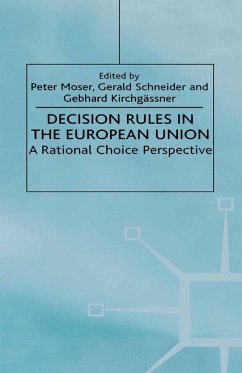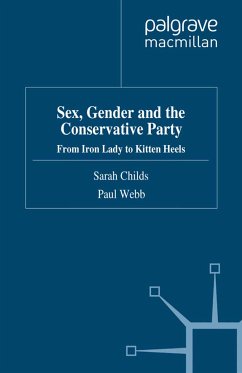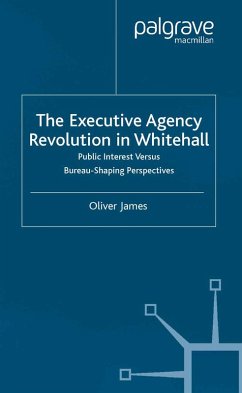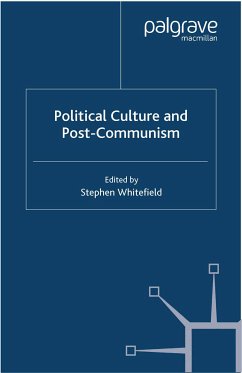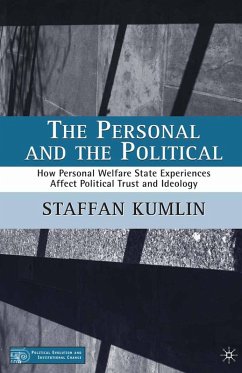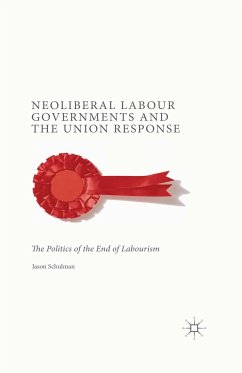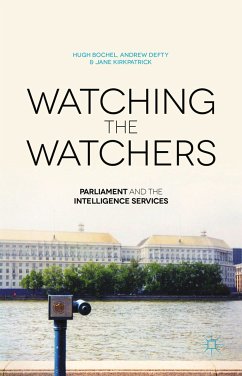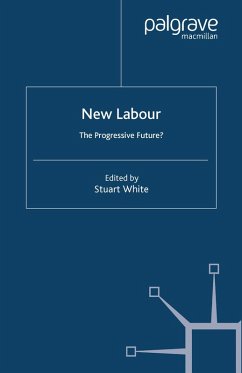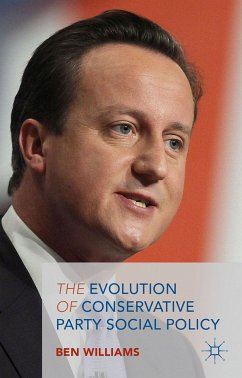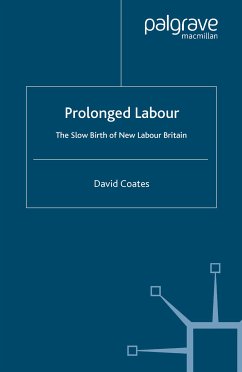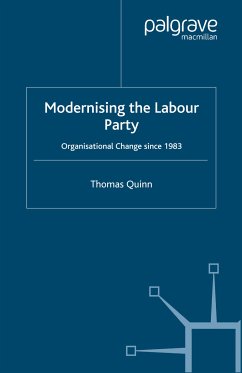
Modernising the Labour Party (eBook, PDF)
Organisational Change since 1983
Versandkostenfrei!
Sofort per Download lieferbar
72,95 €
inkl. MwSt.
Weitere Ausgaben:

PAYBACK Punkte
36 °P sammeln!
Few parties have undergone such comprehensive organizational change as the Labour Party since 1983. Labour's organization once institutionalised the political exchange between office-seeking politicians and the party's policy-seeking trade union paymasters. Using accessible rational choice models, Thomas Quinn explores how consecutive election defeats prompted party leaders to modernize this structure to regain voters' trust, reducing union influence in policymaking, parliamentary candidate selection and leadership contests. The price may be a centralized party vulnerable to membership exit an...
Few parties have undergone such comprehensive organizational change as the Labour Party since 1983. Labour's organization once institutionalised the political exchange between office-seeking politicians and the party's policy-seeking trade union paymasters. Using accessible rational choice models, Thomas Quinn explores how consecutive election defeats prompted party leaders to modernize this structure to regain voters' trust, reducing union influence in policymaking, parliamentary candidate selection and leadership contests. The price may be a centralized party vulnerable to membership exit and union funding cuts.
Dieser Download kann aus rechtlichen Gründen nur mit Rechnungsadresse in A, B, BG, CY, CZ, D, DK, EW, E, FIN, F, GR, HR, H, IRL, I, LT, L, LR, M, NL, PL, P, R, S, SLO, SK ausgeliefert werden.



